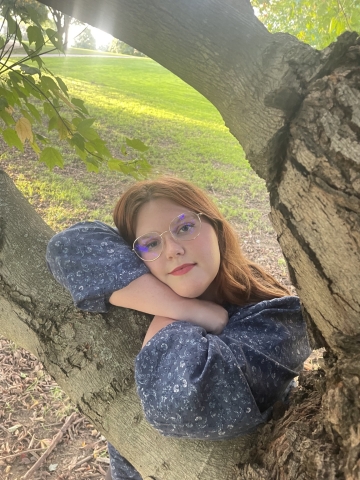Claire Mock, a PhD student in the Department of Geology and Environmental Science at the University of Pittsburgh, is shedding new light on how Earth’s rocks may play a bigger role in climate regulation than previously understood.
Mock’s research focuses on rock-derived organic carbon, which is carbon stored in rock that can be released as carbon dioxide when it breaks down.
“I’m studying how certain geological processes might actually prevent this carbon from breaking down and entering the atmosphere,” she explained. “One of those processes is clay mineral formation, which might act as a barrier, protecting the carbon from decomposition.”
Her work dives deep into the mechanisms behind these interactions, using geochemical tools to trace the pathways involved. Specifically, Mock uses rhenium as a proxy for rock-derived organic carbon and lithium isotope systems to track the formation of clay minerals. By comparing these two indicators, she’s working to determine whether the presence of clay minerals effectively protects carbon from atmospheric release.
While these processes have been studied in plant-based carbon and sediments, their role in rock-based carbon remains relatively unexplored. Mock hopes her findings will add a critical piece to the larger puzzle of the global carbon cycle.
“There’s a lot we still don’t know about how much carbon is added to or removed from the atmosphere by these processes,” she said. “I hope my research helps refine our understanding and models of the carbon cycle.”
Mock’s path to geology was shaped by a desire to stretch herself intellectually. Originally an environmental science major with a strong interest in chemistry, she became fascinated with geochemistry during her undergraduate studies, particularly after studying issues like acid mine drainage.
“When I got the opportunity to study at Pitt, I didn’t know much about geology, but I wanted to challenge myself to learn more about Earth processes that also have a direct environmental impact,” Mock said.
Support from the ARCS Pittsburgh Chapter has played a meaningful role in her journey.
“Beyond the financial support, the ARCS community has been incredible,” Mock shared. “It’s a group that’s there for you when you feel stuck or frustrated. Just knowing there are people cheering you on and reminding you that you’re capable—it’s made a huge difference.”
As she looks ahead to completing her PhD, Mock remains passionate about bridging the worlds of geology and environmental science to address pressing global challenges.

